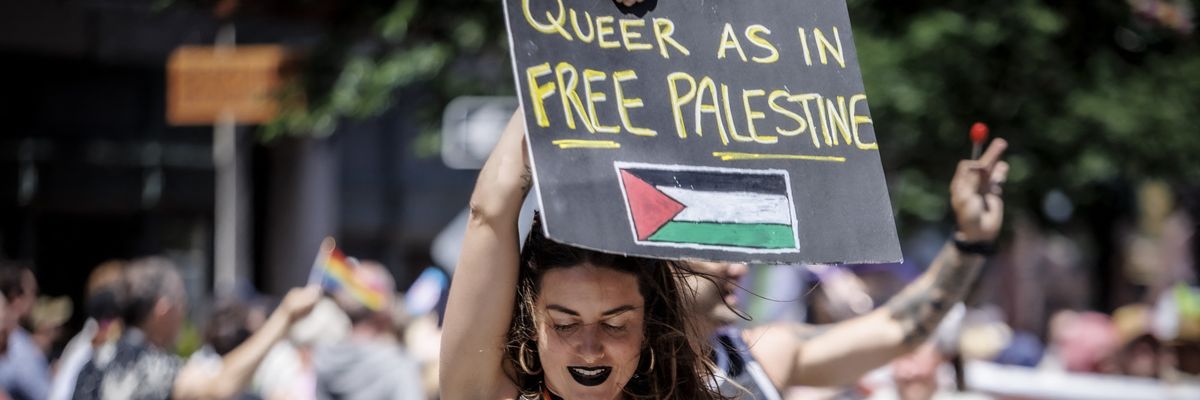As the resistance grows in opposition to the genocide and humanitarian crisis in Palestine, movement organizers across the civil rights spectrum must realize that their stories of oppression are inseparable from the systemic massacre of Palestinians.
The suffocation of life in Gaza is in very basic language the weaponization of a power imbalance. Israel and its allies hold physical and financial power that has been used in practice to murder a conservatively estimated 37,765 people. That same template of organized abuse by an imbalance of power tracks to flash points in the movements for Black, Queer, and trans liberation.
In 1969, the infamous riot at the Stonewall Inn set the path for over 50 years of power and progress for the civil liberties and visibility of Queer and trans people. But before the bricks were thrown, Queer establishments across the country were raided at the discretion of local electeds and police departments to suppress the community and further vilify the identity of LGBTQIA persons. Those who held privilege and power wielded that influence to disempower countless vulnerable Queer and trans people. And those raids and homophobic initiatives gave individual offenders the license to commit hate crimes against Queer and trans people.
Any crime against humanity has consequences for all historically marginalized communities.
Like many other moments of dissent, Stonewall’s catalyst for progress was in its genesis inspired by and directed by the movement for Black liberation. In 1960, college students at Woolworth’s lunch counter in Greensboro, North Carolina, made history in their protest against racial segregation, protests that activated six months of nationwide demonstration. Those policies of segregation under protest were designed to hold and expand the greatest power imbalance in American history, at the insurmountable expense of equity and justice for Black people. And unsurprisingly, just five years later gay rights advocates in Philadelphia modeled the lunch counter protests to oppose the denial of service based on sexual identity.
The parables of American movements for Black power and Queer visibility are principled in very interconnected foundational truths, truths that organizers must translate to the resistance to the genocide of Palestinian people. All people deserve futures without violence. Communities battered by imbalances of power deserve justice. And the entitlement of human dignity is nonnegotiable. These principles transcend Stonewall and the Greensboro sit-ins, and they speak to this moment we are faced with.
The genocide in Gaza is a moment that must foster even greater intersectional activism and solidarity across all oppressed people. First and foremost because of the precious value of human life in Gaza. But also because any crime against humanity has consequences for all historically marginalized communities. Complacency gives violence room to find new spaces to occupy. And just as the organizing power of Black and Queer people find power in a collective, our organized dissent to the execution of innocent people must also be an undivided front.
